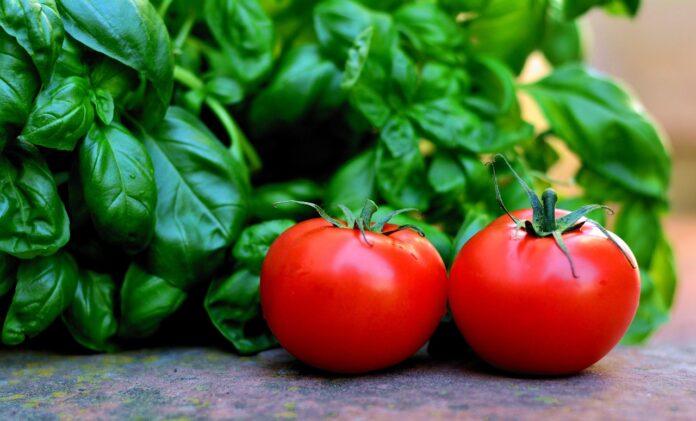
Herbs are relatively low-maintenance plants that produce multiple harvests during the growing season. They can grow in limited space, indoors, outdoors or in containers. They don’t require a lot of sunlight or nutrients to grow. And they can be companion planted with a number of other herbs and vegetables.
Planting a herb garden is pretty straightforward and simple, however, a little bit of knowledge on the growing preferences of specific herbs can make your garden even more successful.
Companion planting is a technique gardeners use to prevent the spread of pests and diseases, cut down on weeding and ensure the needs of all of the plants within the garden are more easily met. Companion planting is done when herbs with similar growing preferences are grouped together and herbs are paired with vegetables that allow for ideal growing conditions as they mature.
Learn what garden plants make ideal companions for common herbs.
Herbs and their companions
Basil
- Herbs: Grows well with oregano and parsley.
- Vegetables: Can be planted with tomatoes, peppers and lettuce.
Bay
- Herbs: Grows well with rosemary, sage, thyme and parsley.
- Vegetables: Can be planted with beans.
Chives
- Herbs: Grows well with dill, marjoram, parsley and tarragon.
- Vegetables: Can be planted with carrots, tomatoes and sunflowers.
Dill
- Herbs: Grows well with chives, lemon balm, lemon thyme and lovage.
- Vegetables: Can be planted with tomatoes, peppers, eggplants, cabbages, broccoli and cauliflower.
Lavender
- Herbs: Grows well with basil and oregano.
- Vegetables: Can be planted with cabbage and cauliflower. It is also used under fruit trees to repel harmful insects.
Marjoram
- Herbs: Grows well with basil, chives, oregano, parsley, rosemary, sage, thyme and lavender.
- Vegetables: Can be planted with most vegetables, including celery, corn, eggplant, onions, peas, potatoes and radishes.
Mint
- Herbs: Grows well with oregano.
- Vegetables: Can be planted with tomatoes, peas, cabbage, broccoli and cauliflower in raised beds. However, mint is a prolific grower and can overtake a gardening space. Care should be taken to contain this perennial herb.
Oregano
- Herbs: Grows well with basil, chives, parsley, rosemary, sage, savory and thyme.
- Vegetables: Can be planted with peppers, eggplants, squash, beans, cabbage, broccoli, brussels sprouts, cauliflower, kohlrabi, turnips and strawberries.
Parsley
- Herbs: Grows well with basil, chives, dill, lavender, lemon balm, lovage, marjoram, oregano, rosemary, sage, savory and thyme.
- Vegetables: Can be planted with asparagus, carrots and tomatoes.
Rosemary
- Herbs: Grows well with bay, basil, chives, lavender, lemon verbena, marjoram, oregano, parsley, sage, savory, tarragon and thyme.
- Vegetables: Can be planted with cabbage, broccoli, cauliflower, collards, beans, garlic and carrots.
Sage
- Herbs: Grows well with lavender, lemon balm, lemon thyme, lemon verbena, lovage, oregano, parsley, rosemary, savory thyme and tarragon.
- Vegetables: Can be planted with cabbage, broccoli, cauliflower, carrots, lettuce and beans.
Tarragon
- Herbs: Grows well with chives, lemon balm, lemon thyme, parsley, rosemary and sage.
- Vegetables: Can be planted with eggplant, zucchini, carrots, squash, tomatoes, broccoli, beets, carrots and summer squash.
Thyme
- Herbs: Grows well with bay, basil, chives, dill, lavender, lemon verbena, lovage, marjoram, oregano, parsley, rosemary, sage and savory.
- Vegetables: Can be planted with cabbage, broccoli, cauliflower and strawberries.












